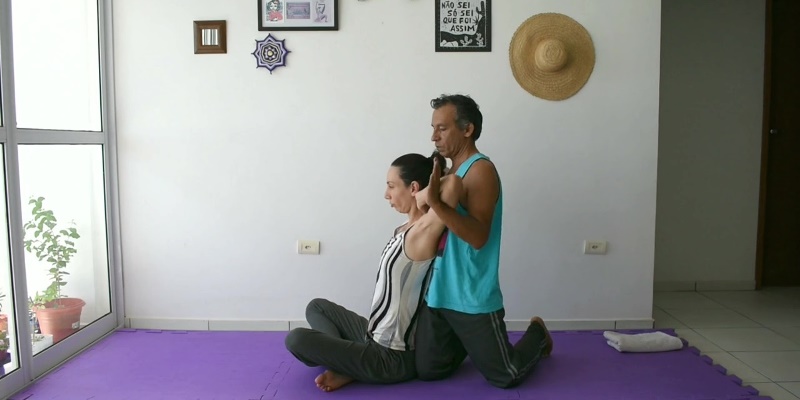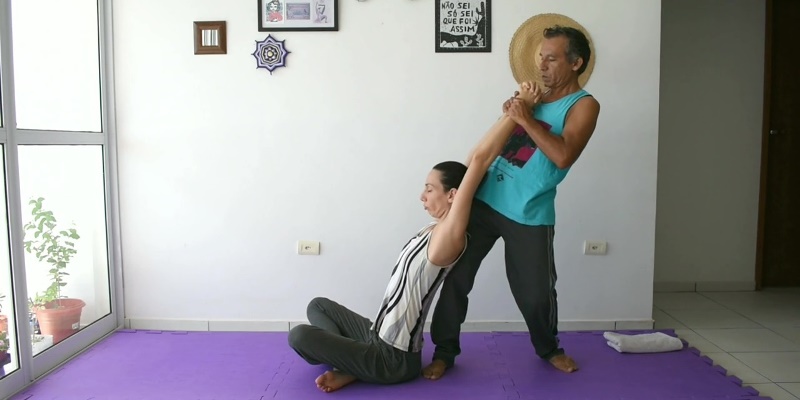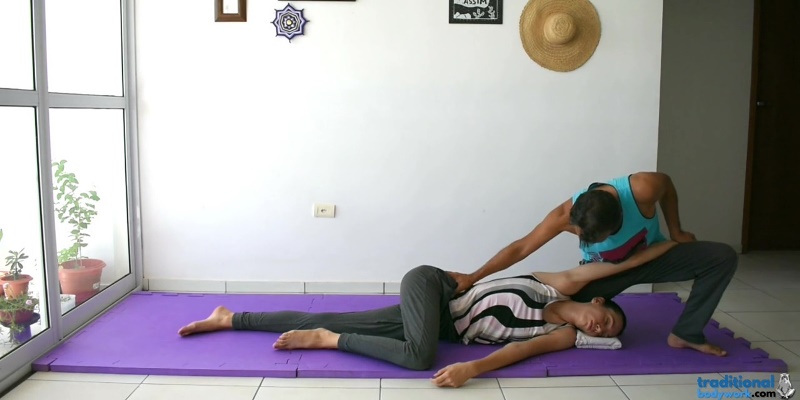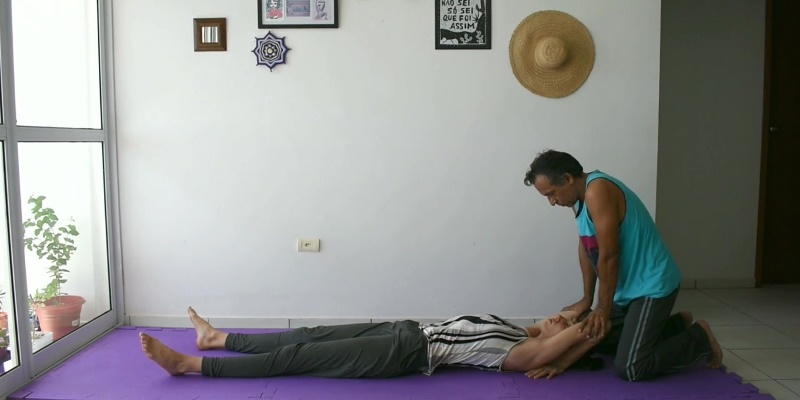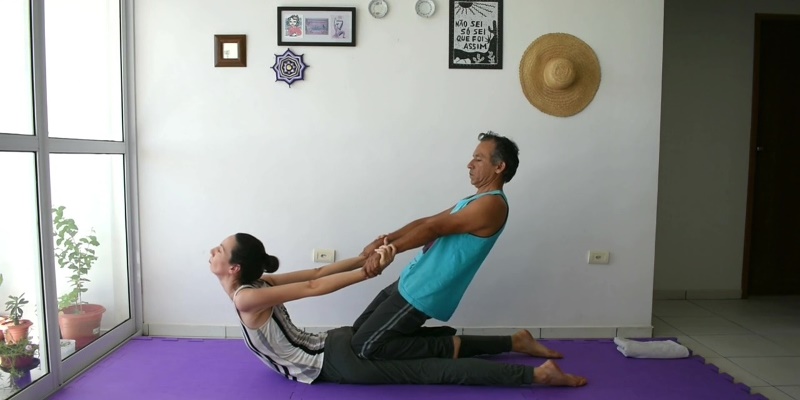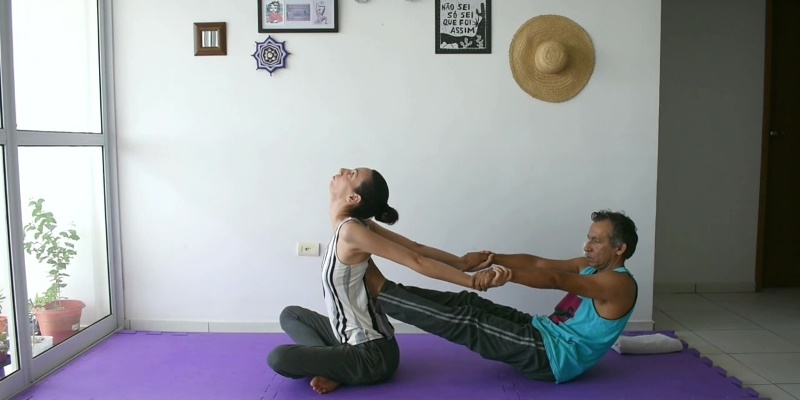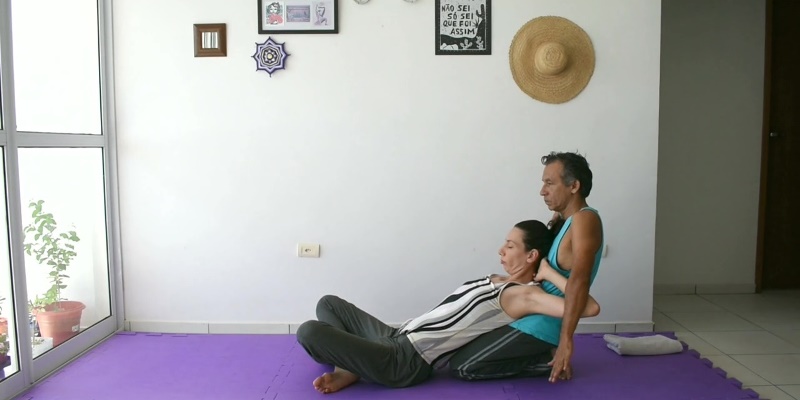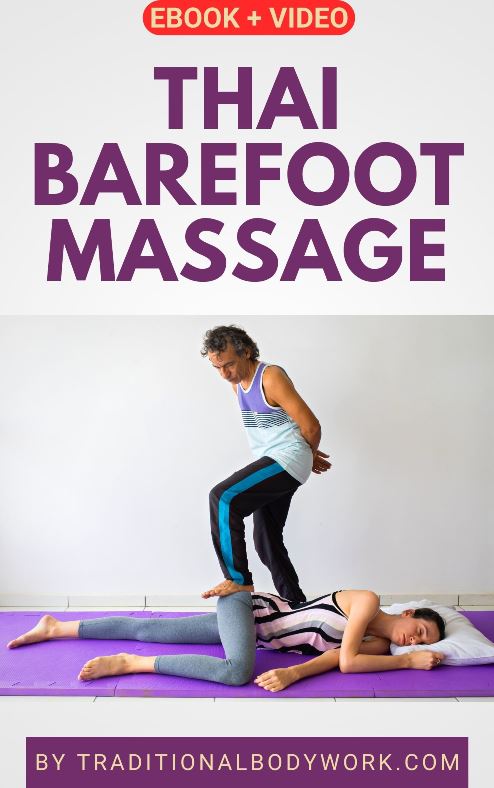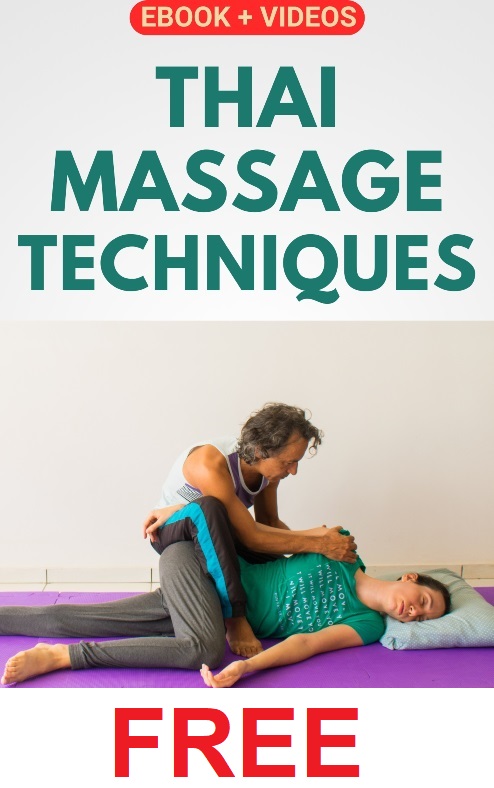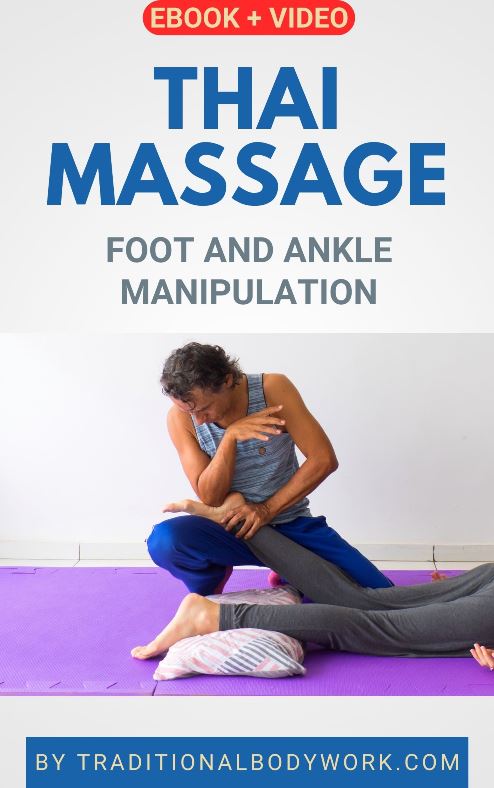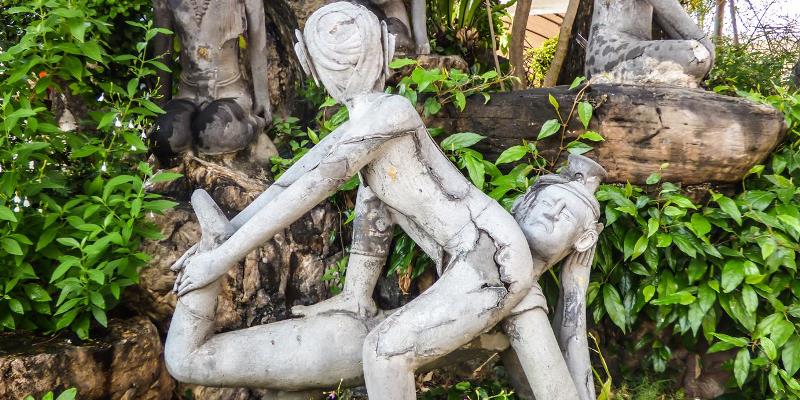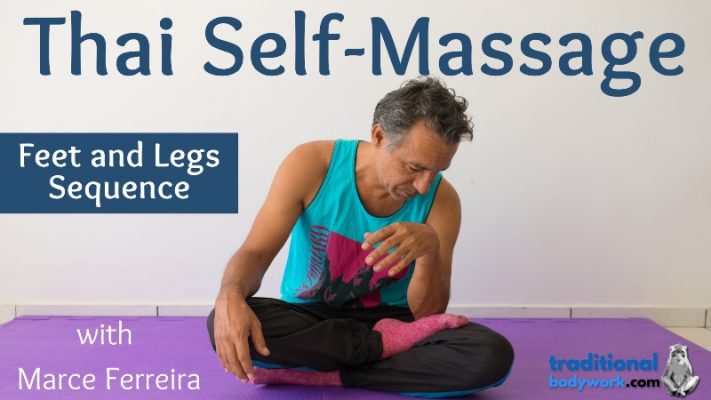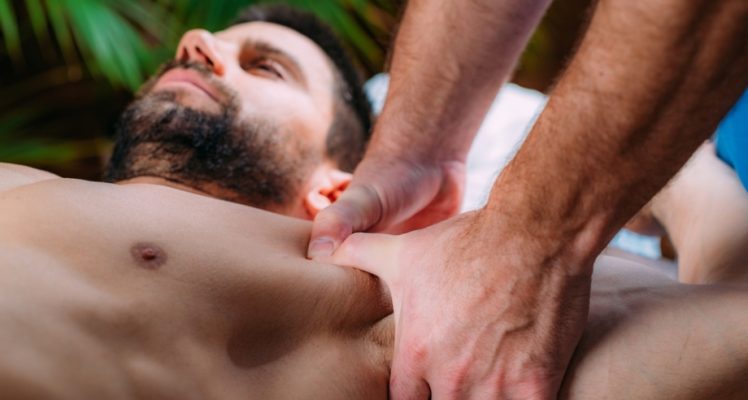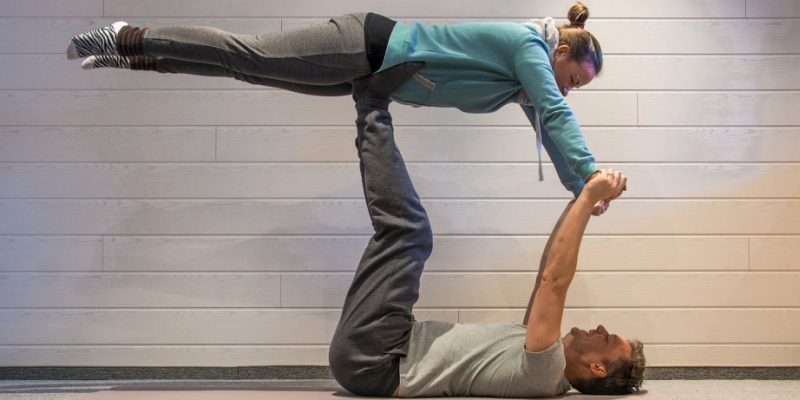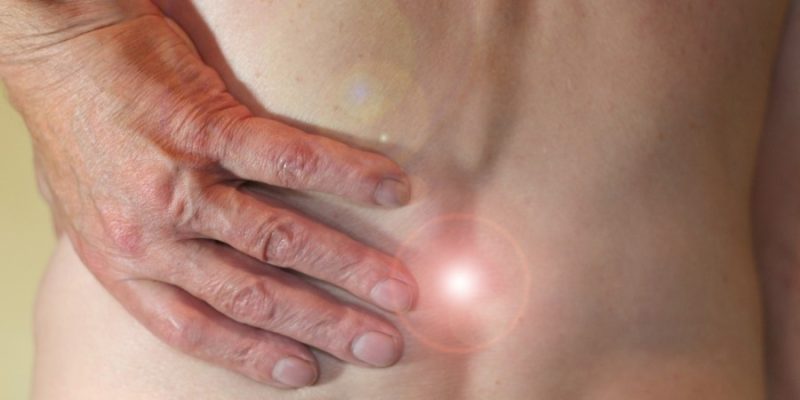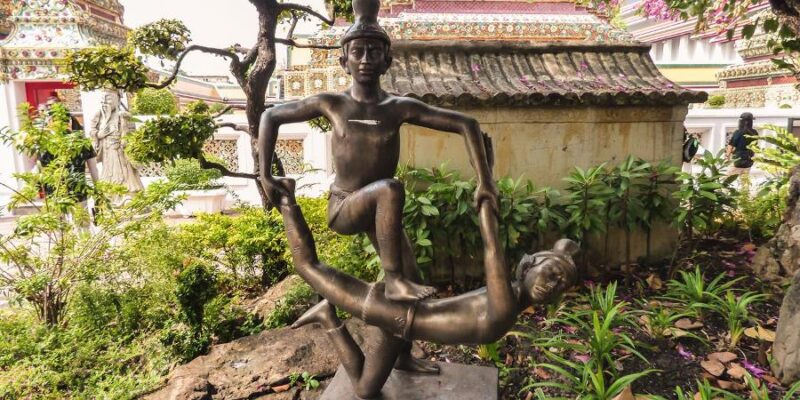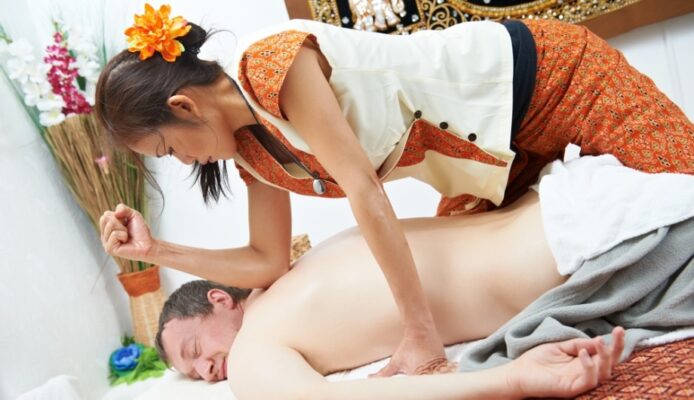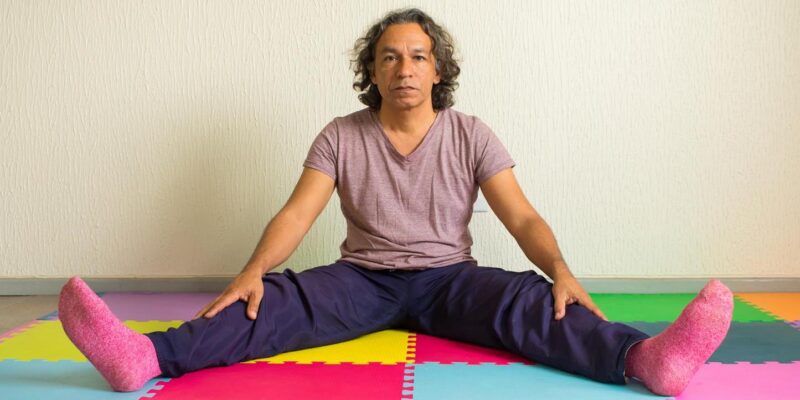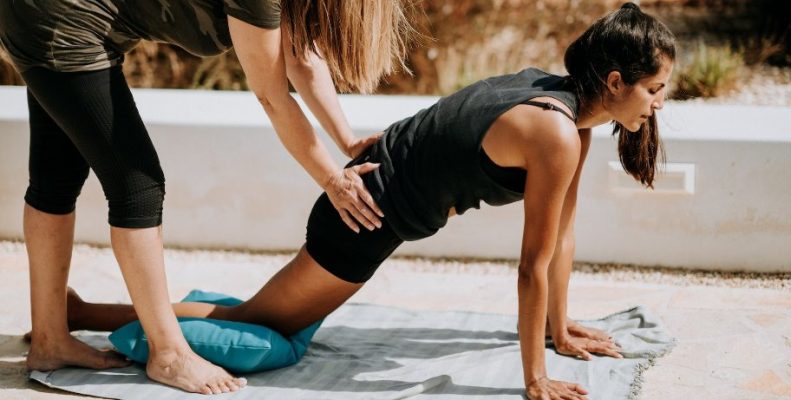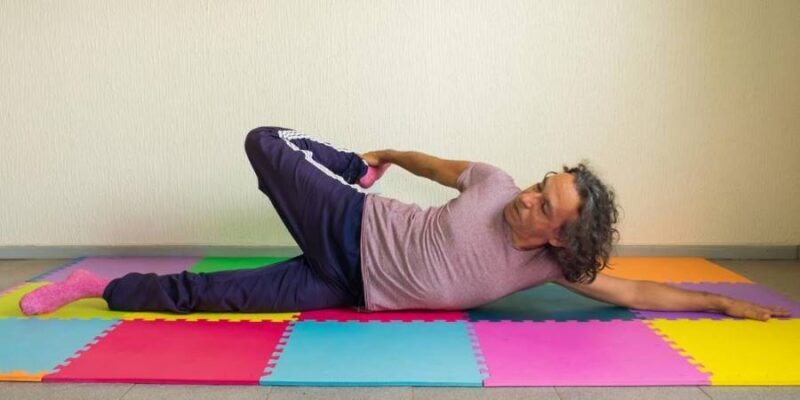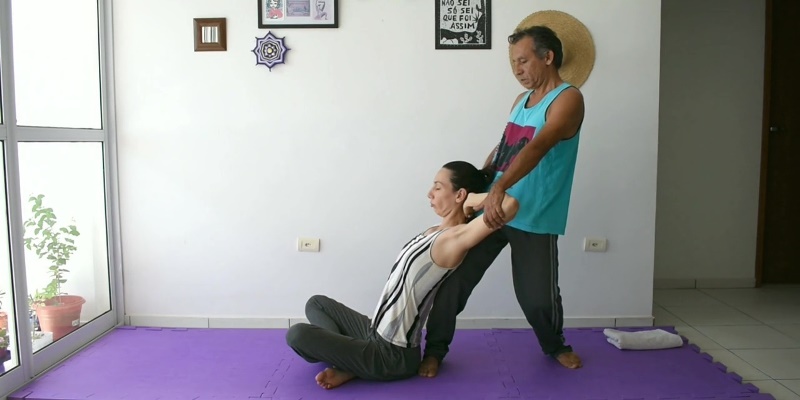
In this post, we take a look at how Thai Massage — also called Thai Yoga Massage — can benefit in stretching the chest muscles, that is, the pectoral muscles.
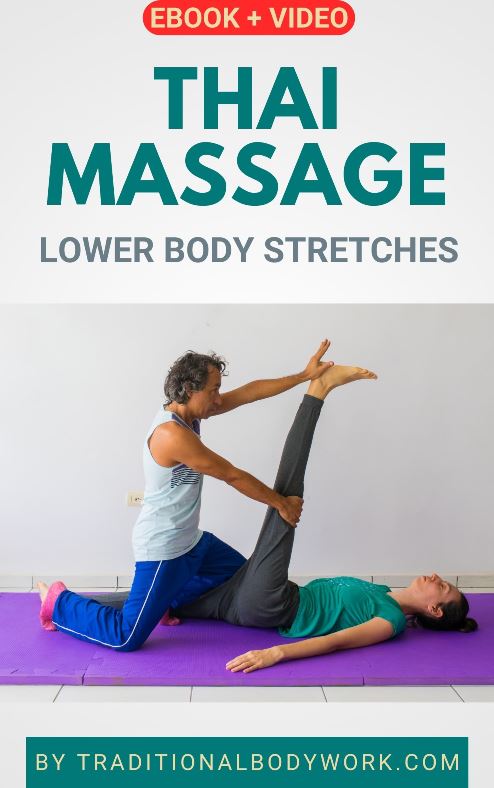
But first some info about the pectoral muscles. The most important parts of the chest muscles are the so-called pectorals, which mainly concern the pectoralis minor and pectoralis major muscles. The chest muscles help moving the arms across the body, and up and down, support pushing and other movements of the arms, such as flexion, adduction, and, for instance, rotation of the shoulder.
Although each Thai Massage stretch is usually focused on stretching only specific muscles, it’s rare that they actually stretch just one set of muscles. Often, other muscles are involved too. In our case, many chest muscles stretches will also stretch the arms and shoulder muscles, and vice versa. And, most arm stretches will also stretch the shoulder muscles, and so on.
There are many ways and techniques to perform chest stretches in Thai Massage, each with slightly different results. The receiver of chest stretches will mostly be in a seated or lying position. Typically, the arms of the receiver will be pulled backwards to open-up and stretch the chest area.
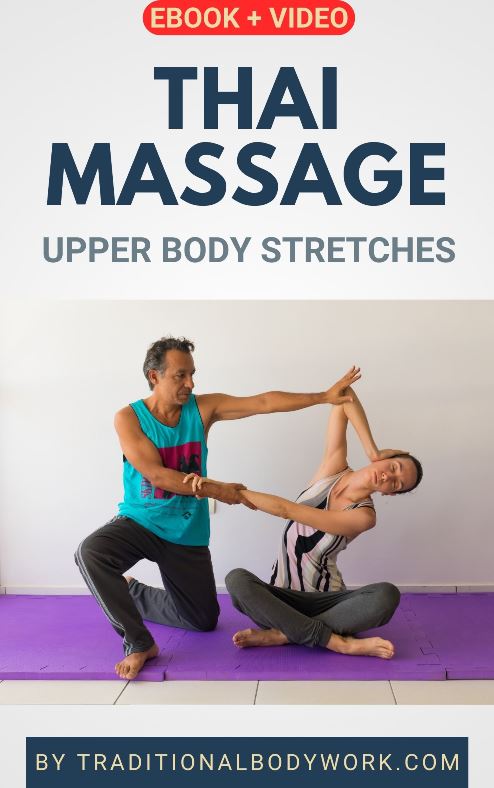
Supple and open chest muscles prevent or alleviate neck, back and shoulder pains, prevent muscle, tendon and joints injuries, support proper breathing, facilitate optimal range of motion for the arms, neck, shoulders, shoulder blade and back, and promote general feelings of wellbeing.
Keeping the pectoral muscles stretched and supple can also prevent or alleviate adhesive capsulitis (also known as “frozen shoulder”), rounded shoulder, shoulder impingement, rotator cuff tears, tendonitis, and bursitis, among other conditions.
In any case, below a few examples of Thai Massage chest stretches (also called chest openers). If you’re interested to learn more about Thai Massage stretches, specifically Upper Body Stretches, just take a look at our e-Workshop Thai Massage – Upper Body Stretches.
Examples of Chest Stretches with Thai Massage
